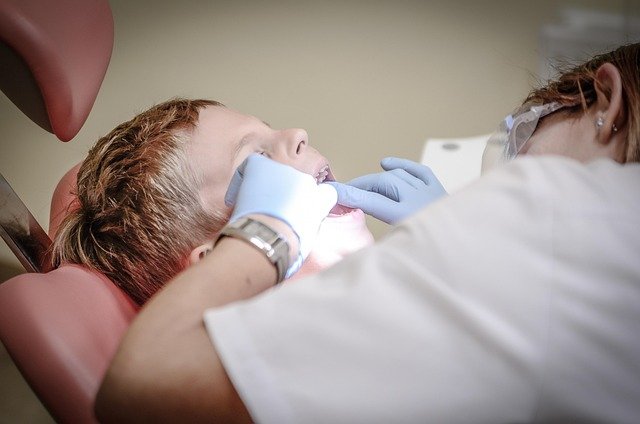Dental Implants Through HSE Dental Scheme: Complete Guide
This comprehensive guide explains how the HSE approaches dental implants in Ireland, where funding is typically limited to cases of serious clinical need. You will learn eligibility criteria, how to obtain a referral via public dental clinics, the clinical reports usually required, likely out-of-pocket costs, alternative treatment options, expected waiting times, and steps to appeal or pursue private care if state funding is not available.

Eligibility for HSE-Funded Dental Work
The Health Service Executive (HSE) in Ireland provides dental implant coverage under very specific circumstances, primarily through the Dental Treatment Services Scheme (DTSS). Eligibility typically requires medical card holders to demonstrate severe functional impairment or significant medical necessity. Patients must show that conventional dentures are unsuitable due to anatomical limitations, severe bone loss, or medical conditions affecting oral function.
Clinical assessment focuses on cases where implants represent the only viable treatment option for restoring basic oral function. The HSE prioritises patients with congenital conditions, trauma-related tooth loss, or cancer treatment complications that have resulted in substantial oral rehabilitation needs.
Referral Pathway Through Public Clinics
Accessing HSE-funded dental implants requires following a structured referral pathway beginning with your local public dental clinic. Initial assessment occurs at community dental services, where dentists evaluate your clinical condition and determine if implant treatment meets HSE criteria.
Successful cases progress to specialist oral surgery or restorative dentistry departments within HSE hospitals. The referral process typically involves multiple appointments, clinical examinations, and comprehensive treatment planning. Waiting times can extend from several months to over a year, depending on case complexity and regional service availability.
Patients must maintain regular attendance at scheduled appointments throughout the assessment period, as missed appointments can result in referral cancellation and require restarting the entire process.
Required Clinical Reports
The HSE requires extensive clinical documentation to support implant treatment applications. Essential reports include detailed medical history, current medication lists, and comprehensive dental examination findings. Radiographic evidence, typically including panoramic X-rays and sometimes CT scans, must demonstrate bone quality and quantity suitable for implant placement.
Specialist reports from relevant medical consultants may be necessary, particularly for patients with systemic conditions affecting healing or bone metabolism. Psychological assessment reports might be required in cases involving facial trauma or congenital conditions affecting appearance and self-esteem.
Clinical photographs, study models, and detailed treatment plans outlining alternative options and their limitations form part of the comprehensive documentation package required for HSE approval.
Typical Costs Not Covered
While the HSE may cover basic implant placement and restoration in approved cases, several associated costs typically remain the patient’s responsibility. Private consultation fees during the assessment phase, specialised imaging beyond basic X-rays, and any preparatory treatments like bone grafting or sinus lifts often require private payment.
| Treatment Component | Typical Cost Range | Coverage Status |
|---|---|---|
| Single Implant (Private) | €2,000 - €4,000 | Not Covered |
| Bone Grafting | €500 - €1,500 | Usually Not Covered |
| CT Scan | €200 - €400 | Limited Coverage |
| Multiple Implants (Private) | €8,000 - €15,000 | Not Covered |
| Sedation Services | €300 - €600 | Not Covered |
Prices, rates, or cost estimates mentioned in this article are based on the latest available information but may change over time. Independent research is advised before making financial decisions.
Maintenance and follow-up care, including professional cleaning and potential complications, typically fall outside HSE coverage. Patients should budget for ongoing maintenance costs even when initial implant placement receives state funding.
Alternatives to State-Funded Implant Treatment
Several alternatives exist for patients who don’t qualify for HSE-funded implants or prefer faster treatment timelines. Private dental implant treatment offers shorter waiting times and greater treatment flexibility, though at significantly higher personal cost. Many private practitioners offer payment plans or financing options to make treatment more accessible.
Conventional dentures remain the primary alternative covered by HSE services, with improvements in materials and design making modern dentures more comfortable and functional than previous generations. Partial dentures or bridges may provide suitable solutions for single or multiple tooth replacement in appropriate cases.
Dental schools and training hospitals sometimes offer reduced-cost implant treatment performed by supervised students, providing a middle ground between public and private care costs. Some patients choose dental tourism, seeking treatment in other European countries, though this requires careful consideration of follow-up care and potential complications.
Private dental insurance plans may provide partial coverage for implant treatment, though most policies have waiting periods and annual limits that may not cover full treatment costs. Credit unions and healthcare financing companies offer specific dental treatment loans with competitive interest rates for qualifying applicants.
The combination of partial HSE coverage with private supplementation represents another option, where patients pay for enhanced materials or additional procedures while receiving basic treatment through public services. This approach requires clear communication with both public and private dental providers to ensure coordinated care and appropriate treatment planning.




